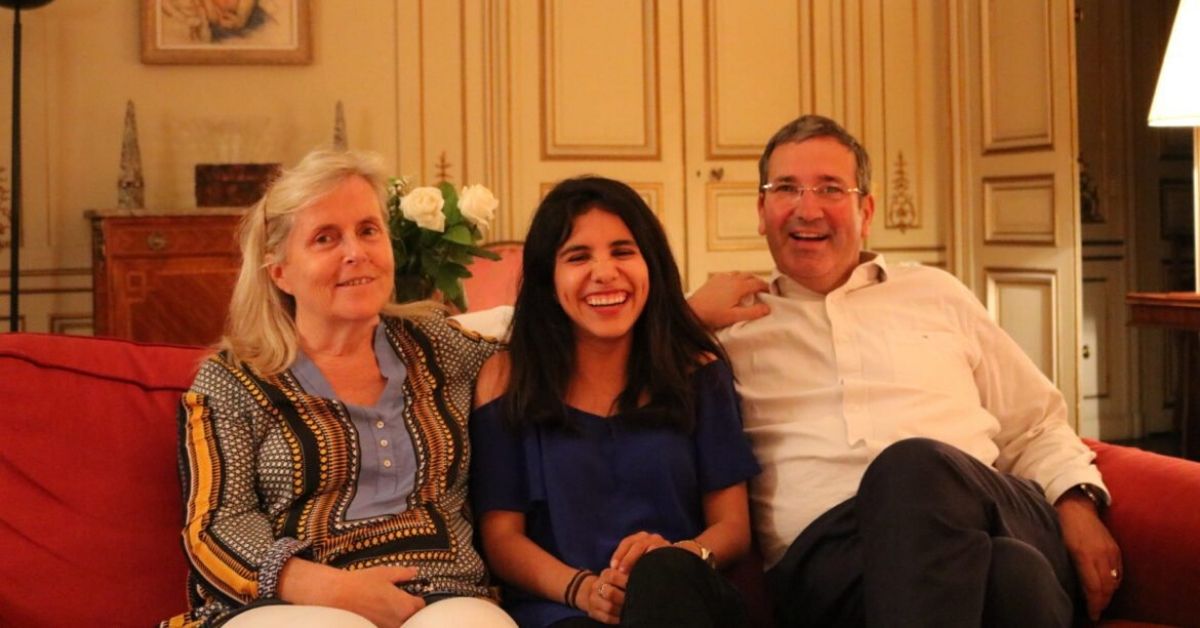After deciding where and when you want to study abroad, a good question to ask yourself is, “What is my preferred housing situation?” While some enjoy the independence of a shared apartment or a dorm with other students, the best way to immerse yourself in the local culture is to stay with a host family in a homestay.
Read on to learn more about why you should choose to live in a homestay during your study abroad program:
First, what is a homestay?
Homestays are when students live with a host family, rather than in a dorm or a shared apartment with other students. They typically include either a private room or shared room with another student. You essentially become part of the family for your stay abroad.
Benefits of living in a homestay abroad
There are so many amazing benefits of choosing a homestay for your study abroad housing. For one thing, it’s likely your host family will cook for you! Sampling the local cuisine is one easy way to understand a country’s culture. You might even get to help them in the kitchen and learn a few traditions or skills that you can take home with you.
Living with a host family is also a great way to immerse yourself in the language. Your host family will likely speak with you in their native tongue. While it can be hard at first, immersion like this truly is the best and quickest way to learn a language.
Most importantly, living in a homestay is a wonderful opportunity to meet and bond with your host family. Many host families keep in touch with the students that stay with them. You’ll be gaining a whole new family on the other side of the world!
Don’t take our word for it. Here’s what some of our former students said about their homestay experiences around the world:
“I had learned long before I set foot in my señora’s home that the Spanish kitchen is a special place. After six months of Josefina’s cooking, I would call that an understatement. Although some host families did cook a bit differently for their students, my American roommate and I were always at the table like equals.” — Kelly, AIFS Abroad in Granada, Spain alum
“I have to admit that I was a bit nervous about coming to live with people that I never even knew existed. I was afraid that I would accidentally disrespect their culture, that I wouldn’t be able to communicate well, you name it. But very much […] the opposite has taken place. Of course, I have made mistakes, but the cool thing about the world is that courtesy and understanding is a language we all recognize.” —Dyimond, AIFS Abroad in Granada, Spain alum
“If you are worried that you won’t have freedom by living in a homestay, you can cross that worry off your list. You still have all the freedom in the world! I have found that my host family is not here to tell me what I can and can’t do, they are simply there to provide a home, cook me meals, and take care of me. My host mom always says that she is our abroad mom, but her house is our house and we are free to treat it as if we were in our own home.”— Matea, AIFS Abroad in Salamanca, Spain alum
“My host parents in Paris work a lot so I mainly see them at night. Whenever possible, I like saying hi and having small talks with them. Doing this is such a vital part of my study abroad and a great way to practice the language I’m learning!”— Andrea, AIFS Abroad in Paris, France alum

“I will definitely be taking some tips and recipes with me to use back in my apartment at school, especially the salads we have with lunch. Another favorite side dish is called ensalada de verano (summer salad), which is a simple, yet delectable dish passed down from her mother.” — Latisha, AIFS Abroad in Granada, Spain alum
“I understand what a big decision it is to choose between living with a host family or living in an apartment, but I really truly encourage you to try the homestay life. Because really, what’s the point of living in another culture if you’re not going to dive in and truly embrace it?” — Chelsea, AIFS Abroad in Salamanca, Spain alum
Ready to meet your host family? Here are some of our program locations where you can live in a homestay:
- Cannes, France
- Barcelona, Spain
- Buenos Aires, Argentina
- Galápagos Islands, Ecuador
- Grenoble, France
- Granada, Spain
- London, England
- Paris, France
- Prague, Czech Republic
- Salamanca, Spain
- Salzburg, Austria
- San José, Costa Rica
- Viña del Mar, Chile
For a more personalized, intimate study abroad experience, staying with a host family in a homestay is the way to go for your housing.
Who better way to teach you about life in a foreign country than the people who actually live there? Not only will they help you learn, but they will also welcome you with love and care —a home away from home.

